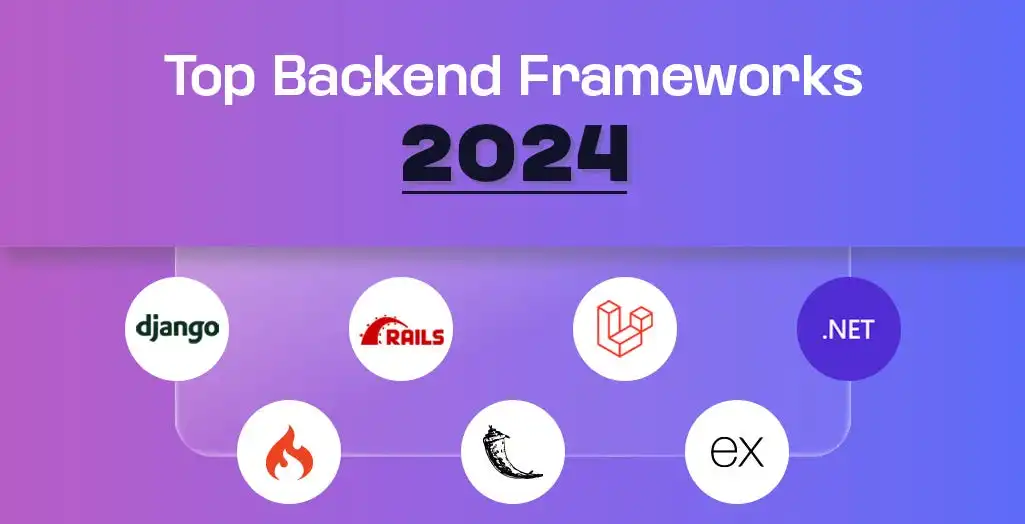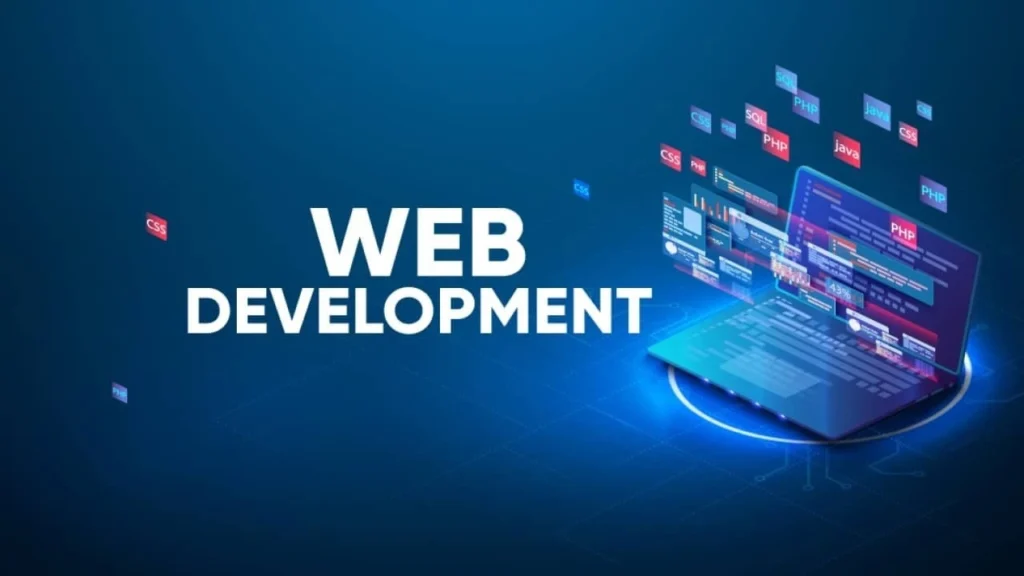In today’s fast-paced world, web development has become an essential part of every business’s online presence. As technology advances, the need for efficient and scalable front-end frameworks becomes crucial. That’s why we’ve compiled a list of the top front-end development frameworks that we believe will dominate the scene in 2024 and the coming years. Here we also discuss complete details on the frontend development frameworks.
What are Front-end Development Frameworks?
Frontend development frameworks play a crucial role in creating interactive and responsive web applications. They are a set of pre-written code and libraries that enable developers to build dynamic and visually appealing websites or applications. These frameworks provide standardized tools and components, making it easier for developers to focus on the business logic and user experience.
Benefits of Using Frontend Development Frameworks
There are several benefits to using frontend development frameworks:
Time Savings
By using frontend frameworks, developers can save significant time and effort by relying on predefined code and components. This allows them to focus on the core functionality of the application rather than redesigning it.
Consistency
Here, frontend frameworks provide a consistent and predictable development experience, ensuring uniformity across different applications and web pages. This consistency helps to maintain a professional and polished look for the final product.
Extensibility
Many frontend frameworks are extensible, allowing developers to add their custom features and functionalities. This flexibility enables developers to tailor the framework to their unique needs and preferences.
Responsive Design
With the rise of mobile devices, it has become essential to create web applications that adapt to different screen sizes and resolutions. Frontend frameworks often include responsive design features that make it easy to create responsive applications.
Community Support
These frameworks typically have an active community behind them, providing developers with support, documentation, and resources. This support network can make the development process smoother and more efficient.
Pre-built Components
Frontend frameworks typically offer pre-made components, including buttons, forms, and navigation menus. These components are seamlessly incorporated into applications, allowing developers to save precious time and energy spent creating them from scratch.
Performance Optimization
It also includes performance optimization features, such as lazy loading and caching. These features can help improve web application speed and performance, ensuring a smooth user experience.
Why are frontend Frameworks Crucial in Web Development?
In the modern digital landscape, the significance of web development cannot be overstated for the success of any business. The initial impression and interaction that visitors have with your website largely depend on its front end. Here, front-end frameworks play a pivotal role in crafting a smooth and aesthetically pleasing experience for your users.
Faster Development Time
One of the primary benefits of frontend frameworks is the significant reduction in development time. Frameworks provide pre-defined code libraries, reusable components, and responsive design patterns that streamline the development process. By leveraging these frameworks, developers can save time and effort, allowing them to focus on building features and functionalities that differentiate your website.
Consistent and Standardized Design
Frontend frameworks offer standardized design patterns and components that help maintain a consistent look and feel across your website. This ensures that your website has a uniform appearance across different devices and browsers, providing a seamless user experience. By using predefined elements and styles, developers can create visually appealing websites with no custom designs.
Cross-browser Compatibility
Ensuring cross-browser compatibility has always been a challenging task for developers. Frontend frameworks address this issue by providing built-in support for popular browsers, including Google Chrome, Mozilla Firefox, Microsoft Edge, and Safari. This ensures that your website works seamlessly with different browsers, regardless of the version or platform.
Responsive Design
With the increasing number of devices used to access the internet, having a responsive website has become essential for businesses. Frontend frameworks like Bootstrap and Foundation provide responsive design capabilities, allowing your website to adapt to different screen sizes. This ensures that your website looks great and functions optimally on all devices, providing a seamless user experience across platforms.
Modularity and Scalability
Frontend frameworks leverage modularity, allowing developers to build applications with smaller, reusable components. This modular approach enables developers to create scalable and maintainable websites. As your website grows and strengthens, you can easily add new features and functionalities by reusing existing components, reducing the overall development time and effort.
Factors to Consider While Choosing Front-End Developer Frameworks
In today’s fast-paced digital world, a professional website is a must-have for businesses, regardless of their size.
For building a website, choosing the right front-end developer framework is crucial. Frontend developers use these frameworks as crucial tools and components to create a visually appealing and user-friendly interface.
Performance
One of the key factors to consider when choosing a front-end developer framework is performance.
A website that takes forever to load can frustrate visitors and even harm its rankings on search engines. Look for frameworks that prioritize performance, such as lightweight frameworks like React or Vue. We also know these frameworks are known for their fast rendering speed and minimal impact on website performance.
Scalability
Scalability is another crucial factor when choosing a front-end developer framework. As your website grows, you want to ensure that you have a framework that can handle the increased traffic. Consider frameworks like Angular or Ember, which have built-in scalability features and can handle high traffic volumes efficiently.
Community Support
When choosing a front-end developer framework, it is important to consider the level of community support. An active community means there are multiple resources available, including tutorials, documentation, and forums. Look for frameworks like React or Angular, which have a large and supportive community of developers who actively contribute to the framework’s growth and evolution.
Simplicity
Simplicity is another factor worth considering when choosing a front-end development framework. Some frameworks may be complex, requiring more time and effort to learn and implement. Look for frameworks that are intuitive and easy to use, especially for developers who are new to front-end development. Frameworks like Vue or Svelte offer a balance between simplicity and power.
Compatibility
Compatibility with the technologies already in use in your project or organization is another factor to consider. Some frameworks have extensive ecosystems that support a wide range of tools and libraries, while others have limited compatibility. Consider your existing infrastructure and choose the frontend developer framework that best integrates with your existing stack.
Top Frontend Development Frameworks 2024
Here, you can check out the latest front-end development frameworks for 2024. These frameworks help you develop modern websites quickly and easily. It’s packed with the latest features and tools to make your development process more efficient.
ReactJS
Created by Facebook, ReactJS has quickly become one of the most popular front-end frameworks. Its component-based approach, ability to reuse code, and utilization of Virtual DOM empower developers to construct dynamic and responsive web applications. Given its extensive ecosystem and strong community support, ReactJS is projected to maintain its position as a frontrunner in front-end development through 2024.
Angular
Angular, developed by Google, has been a favored framework among developers for several years. Renowned for its robust architecture, scalability, and TypeScript integration, Angular is ideal for constructing intricate web applications. Thanks to its vibrant and extensive community, Angular is expected to maintain its popularity as a framework even in 2024.
jQuery
jQuery, despite being one of the oldest frameworks, is still going strong in the front-end development space. With its powerful DOM manipulation and event-handling utilities, jQuery is still widely used for simple and lightweight web applications. With its established user base and wide community support, jQuery is likely to remain relevant in 2024.
Next JS
Vercel developed Next JS, which is a widely used framework. Here we know for its emphasis on high performance and user-friendliness. It offers built-in capabilities for static site generation, enabling developers to create web applications that are both fast and secure. Given its increasing popularity and focus on performance and scalability, Next JS is predicted to make significant progress in 2024.
VueJS
VueJS has gained significant popularity recently because of its simplicity, flexibility, and performance. With its component-based approach and two-way data binding, VueJS allows developers to create highly reactive and customizable user interfaces. With its growing community and vast ecosystem, VueJS is expected to shine brightly in 2024.
Svelte
Svelte is a new frontend framework that has gained attention for its high performance and minimal runtime footprint. With its compiler-based approach, Svelte generates optimized JavaScript code at build time, resulting in faster loading times and reduced bundle sizes. With its innovative approach and strong community support, Svelte will gain even more popularity in 2024.
Backbone.js
Backbone.js is a minimalist framework that provides structure to web applications by organizing code into models, views, and collections. With its simplicity and focus on MVC (Model-View-Controller) architecture, Backbone.js remains a popular choice for building lightweight, single-page applications. With its established user base and continued support, Backbone.js will remain relevant in 2024.
Ember.js
Ember.js is a mature framework that provides a comprehensive solution for building ambitious web applications. With its powerful community, extensive ecosystem, and built-in support for testing and routing, Ember.js is a popular choice for building complex front-end applications. With its proven track record and continuous improvements, Ember.js will remain a prominent framework in 2024.
Semantic UI
Semantic UI is a UI framework that offers a clean and modern design system. With its extensive set of pre-designed UI components, Semantic UI allows developers to create visually appealing and responsive websites. With its consistent style and community-driven approach, Semantic UI will continue to attract developers in 2024.
Preact
Looking for a speedy and efficient alternative to ReactJS? Look no further than Preact!
With its small footprint and focus on performance, Preact is perfect for building lightweight and highly responsive web applications. With its growing community and compatibility with React, Preact is gaining even more popularity in 2024.
Final Words
The landscape of front-end development frameworks is always strengthening. Although some frameworks on this list have been established for years, new ones are continuously emerging to challenge the norm. As we advance into 2024, the popularity and usage of these frameworks may shift, but we’re confident that these ten will remain strong contenders and preferred choices for developers.
At SleekIT Technologies, we leverage both modern and cutting-edge front-end development frameworks to stay ahead in this dynamic environment. As a top-notch IT Services and IT consulting company, our frontend developers always use the latest frontend development framework.


